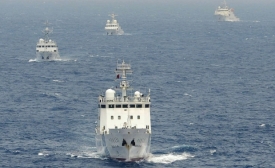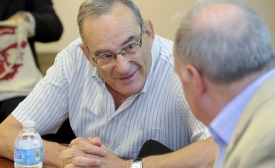media

“Gender Bias Without Borders" highlights the research of CPD University Fellow Dr. Stacy L. Smith (lead author) and her team at USC Annenberg, and demonstrates the prevalence and nature of female characters in popular films from 11 countries around the world, revealing one unifying theme: female characters are not equal to men and they are not aspirational in this sample of global films.
A new study by the U.S. Broadcasting Board of Governors (BBG) and Gallup on women and media in Africa says education and language skills play a big role in influencing which platform women access most frequently. And while daily TV usage for men and women is similar in most places, the same cannot be said for radio, mobile phones and the Internet.

Prof. Erik Nisbet from the Ohio State University discussed how the messaging contest between Russian and Western media over the conflict in Crimea influenced Russian audiences.

CPD University Fellow and USC Annenberg Professor Thomas Hollihan publishes a new book with contributions from Dr. Patricia Riley.
Every year, Reporters Without Borders (RSF) publishes their World Press Freedom Index, which ranks every country in the world using the following six criteria: pluralism, media independence, environment and self-censorship, legislative framework, transparency, and infrastructure. This chart lists the ten best and worst places to be a journalist today. The time-lapse maps below tell a more complicated story.
Recently, there has been a great deal of debate, and no small amount of axe grinding, regarding the mission and the effectiveness of U.S. international broadcasting under the Broadcasting Board of Governors.

In this audio clip, CPD Visiting Senior Scholar and Director of the Center for International Communication at Bar-Ilan University in Israel, Eytan Gilboa shares his thoughts on media framing and public opinion polling as a means of successful public diplomacy practice.
Some Turkish journalists' unions have harshly criticized the beheading of US journalist James Foley, who had been missing since 2012, by the “Islamic State” (IS) on Tuesday and expressed concern for the Turkish citizens who have been held captive by the terrorist organization since June.







